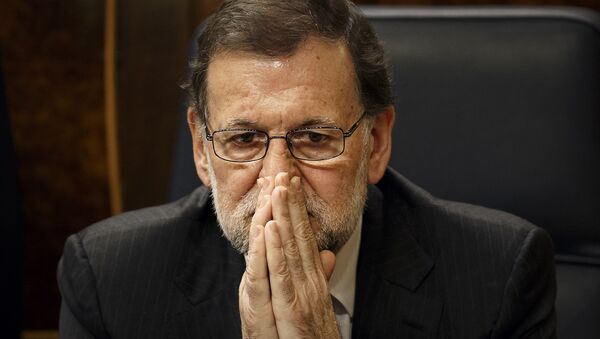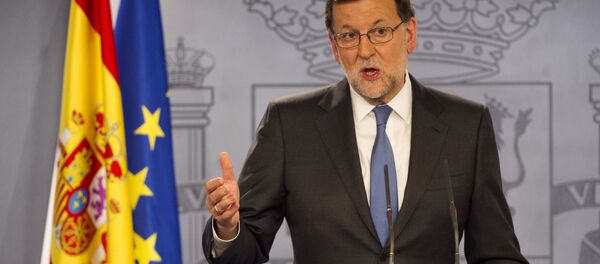Many experts blame the current political stalemate primarily on social instability and the ongoing economic crisis.
‘During Mariano Rajoy’s premiership unemployment in Spain has gone up. Many people blame it on the government’s ineffective social policy, but I believe that it also stems from the economic crisis now happening elsewhere in Europe,” Alexander Sogomonyan, an expert on global problems at Moscow State University, told the newspaper.
Socialist leader Pedro Sanchez has described the country’s budget deficit of 5 percent of the GDP and the state debt now approaching 100 percent as “a graphic example of the Popular Party’s disastrous budget and tax policy.”
Vasily Koltashev, Director of the Center of Economic Studies in Moscow, warned that the main parties’ unwillingness to resolve the current economic crisis could enflame nationalistic sentiment and set off a new wave of protests.
“The economic situation remains lackluster with unemployment exceeding 25 percent and no light still seen at the end of the tunnel. The only possible option left for Spain is to leave the EU, but the problem with Spanish politicians is that they stand for European unity which, in turn, perpetuates the crisis the country is going through,” Koltashev noted.
He added that Spaxit could help the government improve the social and economic situation in the country, free up its customs policy, better protect against economic competition (primarily German), roll back social spending cuts and allow it to print more money to stabilize the economy.
“There are many mechanisms to change the situation for the better, but EU membership only perpetuates the current crisis, which in turn, will strengthen the hand of the nationalists and bring about a new, more dangerous, wave of public discontent,” Koltashev emphasized.



